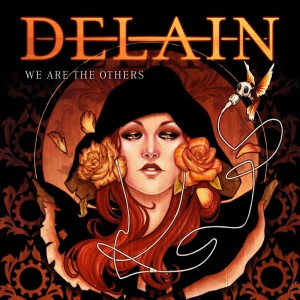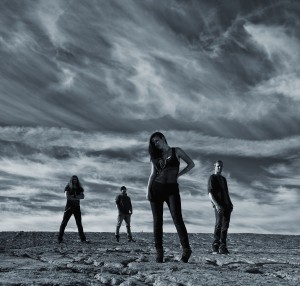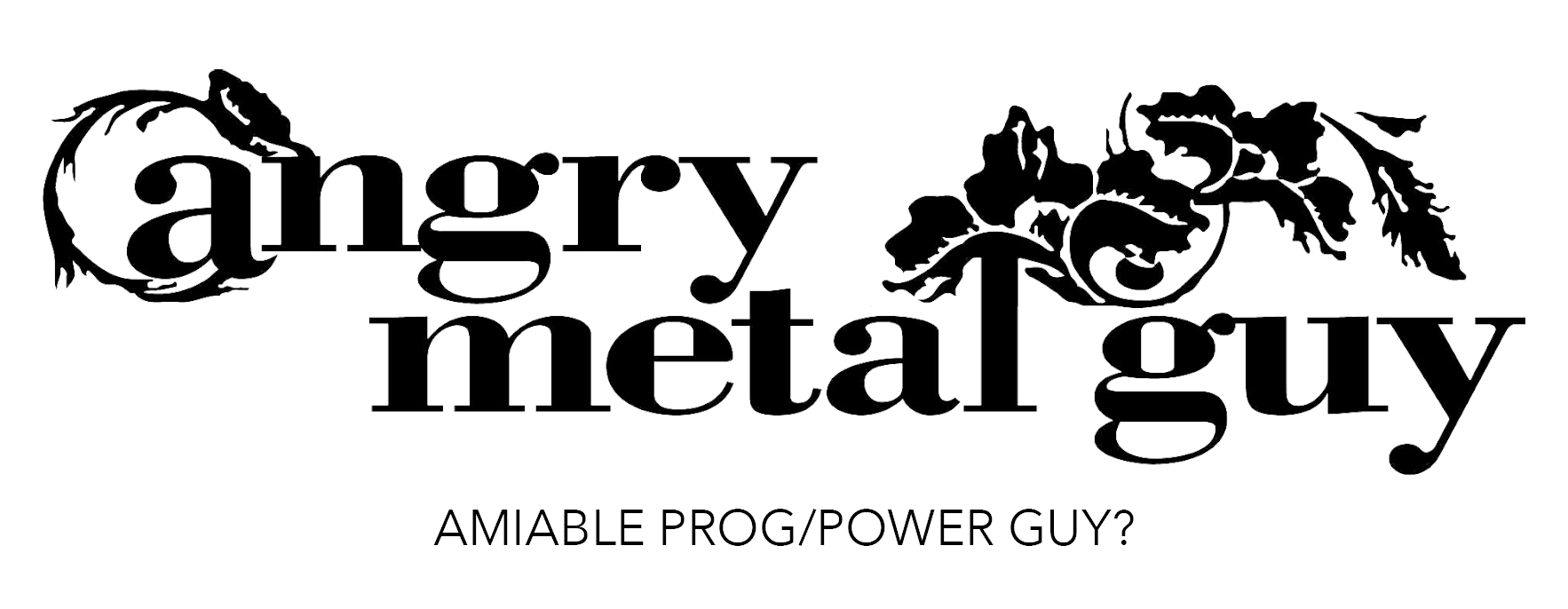Delain // We Are the Others
Rating: 2.5/5.0 — For our ever-growing 12-17 year old girl demo.
Label: CNR Music | Sensory Records
Websites: delain.nl | facebook.com/delainmusic
Release Dates: US: 07.03.2012 | EU: 2012.06.01
 I was once 12. When I was 12, I really loved a few things that I would never listen to in this day and age. Hell, these are things that I probably wouldn’t admit if I wasn’t anonymous. I listened to the likes of Korn and Biohazard. I know [and now WE know! – Steel Druhm]. But the thing was, this music was perfect for me when I was 12, because they had the lyrics that spoke to a 12 year old (what that says about the grown men writing those lyrics on the other hand…), and a sound that wasn’t too complex but that felt tough. I learned all about being tough from Biohazard and I learned all about wallowing in my self pity from Korn. These were important lessons and Delain is teaching these kinds of lessons to a new generation of 12 year old girls. And while that might seem rude, I really can’t think of anyone else who would listen to this.
I was once 12. When I was 12, I really loved a few things that I would never listen to in this day and age. Hell, these are things that I probably wouldn’t admit if I wasn’t anonymous. I listened to the likes of Korn and Biohazard. I know [and now WE know! – Steel Druhm]. But the thing was, this music was perfect for me when I was 12, because they had the lyrics that spoke to a 12 year old (what that says about the grown men writing those lyrics on the other hand…), and a sound that wasn’t too complex but that felt tough. I learned all about being tough from Biohazard and I learned all about wallowing in my self pity from Korn. These were important lessons and Delain is teaching these kinds of lessons to a new generation of 12 year old girls. And while that might seem rude, I really can’t think of anyone else who would listen to this.
Delain is one in a line of female fronted gothic rock and heavy music from the Netherlands. Like The Gathering and Within Temptation and Epica, they’re fronted by a woman who has a fantastic voice, and while the project has moved away from its original intention of being a studio project with a lot of guest vocalists (á la another project by a Cheesehead called Ayreon), We Are the Others is carried by Charlotte Wessels’ voice to pretty good effect. The songs here are catchy, poppy and simplistic. They’re not particularly heavy, but from time to time (like the opening riff from “Mother Machine” or “Where Is the Blood” or “Babylon”) the band knocks out a thrashy sounding riff, or a nü-metal groove that gets the head nodding. Still, the musicians are largely anonymous behind Wessels’ lead and despite having listened to this record a bunch of times, I can’t think of a stand out musical passage that isn’t done with a voice.
I think the major downfall of the record is set up in two parts (aside from the pretty anonymous musical profile). The first is that the lyrics aren’t great ever and the often times range between sad and embarrassing. Title track “We Are the Others,” (which I have been singing as “We are the otters” all week) is all about being a social outcast and how sad that is—while listening to music that could be played on pop radio and that is actually less edgy than Die Antwoord or Lady Gaga—is just kind of embarrassing, to be honest (“Normal is not the norm / Take off your uniform.” Fuck. Shoot me.). But if you’re a 12 year old girl who is unpopular for whatever reason, I’m sure that it speaks directly to your soul (and is emblazoned on your trapper keeper). But possibly the worst song on the record lyric-wise (not music-wise, it’s actually a really beautiful piano part and vocal melody) is “I Want You,” which is all about (you guessed it) unrequited love (and stalking). What speaks more to 12 year olds than unrequited love (and stalking)? Nothing, I’d wager. In any case, whoever is writing the lyrics managed to hit a roadblock (after two bridges and a huge reptitive chorus) and that’s when we get this artistically brilliant utterance: “No one could see it coming / A tragic day / How did that car get in your way?” Which is followed by the chorus only with the words “I got you” instead of “I want you.” Actually, I take it back, that’s brilliant.
 In any case, I feel like the big take away from Delain (downfall #2 if you’re keeping count) is how culture is a feedback loop of socialization. This record is full of tracks aimed at girls, who are learning important lessons about relationships and whose lives are reflected in the nearly always boy-related lyrics. With lessons like “If I hurt you so much (where’s the blood?),” young women are learning that only physical damage is real damage. “Milk and Honey” tells the heartwarming story of threatening revenge against someone after getting dumped (on a nice day). Now, I know that all the metal I grew up listening to was also socialization—see the first paragraph—I guess it feels more obvious on this record, because while it’s nominally “alternative,” it’s actually remarkably normative in its construction of gender roles in the lyrics and music1.
In any case, I feel like the big take away from Delain (downfall #2 if you’re keeping count) is how culture is a feedback loop of socialization. This record is full of tracks aimed at girls, who are learning important lessons about relationships and whose lives are reflected in the nearly always boy-related lyrics. With lessons like “If I hurt you so much (where’s the blood?),” young women are learning that only physical damage is real damage. “Milk and Honey” tells the heartwarming story of threatening revenge against someone after getting dumped (on a nice day). Now, I know that all the metal I grew up listening to was also socialization—see the first paragraph—I guess it feels more obvious on this record, because while it’s nominally “alternative,” it’s actually remarkably normative in its construction of gender roles in the lyrics and music1.
All of that said, as a gateway band for kids, I think that Delain is probably remarkably successful. Until recently they were signed to Roadrunner, and it was Roadrunner that dumped Life of Agony, Type O Negative, and Biohazard in my lap as an impressionable kid. These were all gateway bands for a kid who’d gotten lost in the post-Nirvana alternative deluge but still loved heavy music. From that perspective, the catchy melodies with some heavy themes and heavy riffs don’t go over that terribly. The music doesn’t make me sick like Amaranthe but it certainly doesn’t speak to me like The Gathering did or Theatre of Tragedy’s early stuff did, either.

















